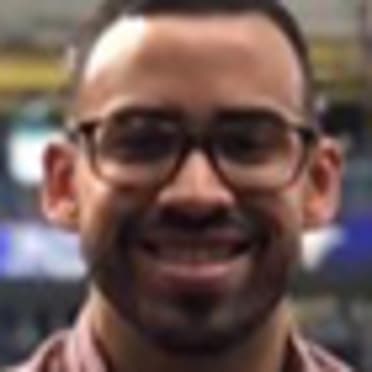This piece originally ran in 2021 on the 40th anniversary of Fernando Valenzuela's debut. It is being resurfaced in light of the news of his passing.
To many people, Fernandomania began after Fernando Valenzuela tossed a shutout against the Astros on April 9, 1981. The fact that Valenzuela delivered that type of performance on short notice after Jerry Reuss went down with an injury helped enhance the moment, and his legacy.
Over the next few months, Dodger Stadium was in a frenzy every time No. 34 took the mound, and the legend of Fernandomania quickly grew larger than life. Valenzuela went on to win the National League Cy Young and Rookie of the Year Awards in ‘81. But most importantly, he captivated the Mexican community living in Los Angeles and connected them to the Dodgers more than any other player in franchise history.
The whole ride felt like a perfect story: A pitcher who had come out of nowhere to become an overnight star. Except Valenzuela didn’t come out of nowhere. At least not to the people who shared a clubhouse with him.
To those people, Fernandomania started in September 1980, seven months before that famous Opening Day start.
“When Fernando pitched in 1980, [that] was really his baptism,” recalled former Dodgers first baseman Steve Garvey, who played three seasons with Valenzuela. “[He] came in a difficult situation and pitched extremely well. He impressed a lot of people, of course, at the end of the season. Then there were expectations that Fernando would have a good chance in Spring Training to be part of the team and make a significant contribution, and the rest is history.”
Pitching extremely well might even be putting it lightly. As good as Valenzuela was to start the 1981 season, the left-hander was nearly as dominant to begin his career in ‘80 as a 19-year-old, as he didn’t allow an earned run in 10 appearances. After working on a screwball in the Minors, Valenzuela made his Major League debut on Sept. 15, 1980, tossing two scoreless innings against the Braves. Four days later, he struck out four and recorded three more scoreless innings against the Reds.
Over his next five games, Valenzuela added 6 2/3 scoreless innings to his resume. He quickly got more responsibility from Dodgers Hall of Fame manager Tommy Lasorda despite being the youngest pitcher on the roster. The stuff was that good.
“I was anxious to see what the situation was, to have the experience of being in a Major League stadium and face hitters at that level,” Valenzuela said. “At times, you didn’t have that opportunity because starting pitchers pitched eight innings and then you had the closer. … I waited a week, more or less, and the opportunity arose. It wasn’t nerves, but anticipation, adrenaline, of being there on the mound in a Major League stadium.”
That adrenaline only grew in the big moments, but the nerves remained low for Valenzuela. With three games left in the regular season and the Dodgers trailing the Astros by three games, the clubs met for a final series in Houston. Lasorda turned to Valenzuela in two of the three games, and he delivered with four scoreless innings. The Dodgers went on to sweep the Astros, forcing a one-game tiebreaker.
“To me, Fernandomania didn’t start in 1981, it started in 1980 when we started that series against the Houston Astros,” said Dodgers Hall of Fame Spanish broadcaster Jaime Jarrin, who also served as Valenzuela’s interpreter. “The Dodgers had to win three games in order to tie with Houston, and Fernando came on in relief and he did a fantastic job. Many people thought Fernando should’ve started the [tiebreaker] game, but Lasorda decided to pitch Dave Goltz.”
Valenzuela had pitched in Game 162 in relief, which made Goltz a more traditional choice for Game 163. Unfortunately, Goltz allowed four runs (two earned) in three innings, and the Dodgers never mounted a comeback. However, Lasorda didn’t hesitate to bring Valenzuela in as a reliever later in the game. The Dodgers lost, 7-1, ending their season, but Valenzuela did what he had done all month, pitching two scoreless innings. He didn’t allow a run in 17 2/3 innings across 10 relief appearances as a 19-year-old in ‘80.
“That’s when Fernando showed his character, his guts -- he was amazing,” Jarrin said. “That’s why I think Fernandomania started in 1980, and then you know what happened in 1981.”
